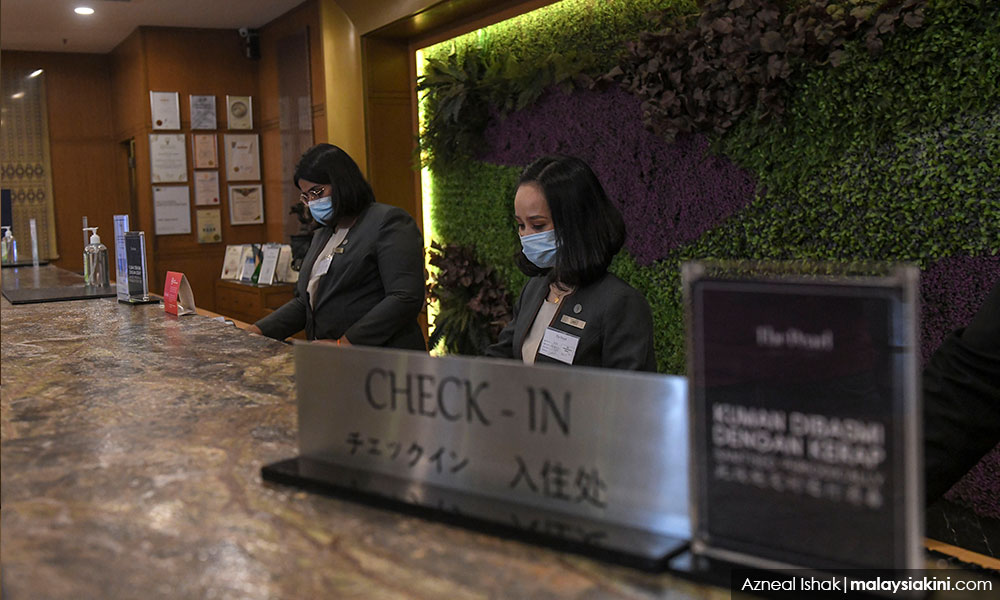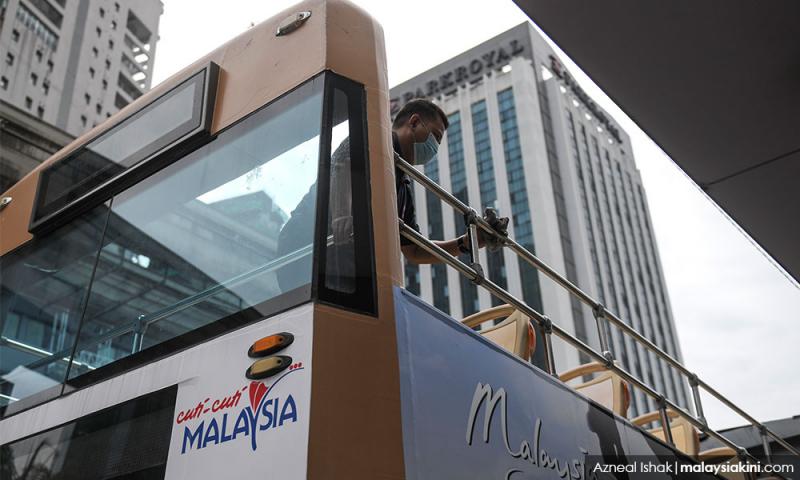LETTER | Tourism industry in dire need of life support
LETTER | There have been many regular reports of tourism industry leaders reminding the government of the importance of our local tourism industry, which in 2019 contributed 15.5 percent to our economy and employed 3.6 million people or 23.6 percent of our nation’s workforce.
But so far, there had been no workable solutions that could benefit the entire tourism industry, given that it encompasses many sectors and overlaps many other industries.
Moreover, inflated tourism statistics include leisure activities that have nothing to do with any tourism business.
For example, the gross value added of all tourism industries was a whopping RM240.2 billion in 2019, and this included inbound, domestic, and outbound tourism expenditures. The largest contributor was domestic tourism expenditure with RM103.2 billion.
But domestic tourism was more of leisure activity and contributed little to tourism businesses, as 98.5 percent used land transport and over 70 percent stayed in unpaid accommodation provided by relatives and friends, including balik kampung trips during festive holidays.
Domestic visitors spent RM15.5 billion on petrol or diesel alone, as most of them drove their own vehicles and spent RM10.5 billion in visited households, with shopping accounting for RM39.0 billion and food and beverage RM14.8 billion. Hence, businesses that benefited from domestic tourism were mainly shops, fuel stations, food and beverage outlets, hotels, and public transport services.
As for travel agents and tour operators, their share of domestic tourism is minuscule. Even with domestic, inbound, and outbound tourism expenditures combined, their total share amounted to only 1.8 percent of the total RM240.2 billion gross value added of all tourism industries.
But many travel industry leaders continued to be vocal while trying to promote the interest of their members by highlighting that the demise of travel agents and tour operators would lead to the total collapse of the entire tourism industry in our country.
In 2019, the biggest sectors in local tourism businesses were the retail trade that captured 46.2 percent of total expenditure, food, and beverage with 18.0 percent, and followed by accommodation that included licensed hotels and private residences.

Hotels are well represented by various tourism trade bodies such as the Malaysian Association of Hotels (MAH), Malaysian Association of Hotel Owners (MAHO), and Malaysia Budget Hotel Association (MyBHA).
MAH, MAHO and MyBHA had been issuing timely press statements and their leaders were often interviewed by the media highlighting the plight of the hotel industry. Sadly, substantial investments in the hospitality sector have been wiped off by the pandemic.
As for the travel trade, the biggest losers are those that have been operating large fleets of tour vehicles, which were mostly utilised for inbound tourists. With market values falling below the amount owed to leasing companies, tour buses have turned into negative assets.
At the onset of the pandemic, a few smart operators quickly disposed of their tour buses while the vast majority hung on to their prized possessions. They should have heeded the warning given by Prime Minister Muhyiddin Yassin last July that the tourism sector will need four years to recover.
Meanwhile, airlines, hotels, and tour operators that have been trying to survive will continue to bleed. Tourism businesses that could not be in suspended animation for too long need life support for as long as local infections of Covid-19 remain high.
Until then, any tourism promotion or arrangement for opening international travel will only end up as nothing more than a syiok sendiri exercise. The sole focus for all parties now should be bringing Covid-19 daily cases to a manageable level and making our country safe for all.
The views expressed here are those of the author/contributor and do not necessarily represent the views of Malaysiakini.
RM12.50 / month
- Unlimited access to award-winning journalism
- Comment and share your opinions on all our articles
- Gift interesting stories to your friends
- Tax deductable
